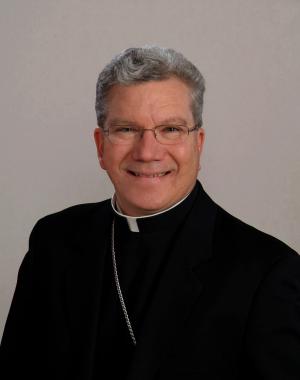A fund amental theme that runs throughout Sacred Scripture is to be called by name. In other words, in the eyes of God, you and I are not simply one in a crowd, nor are we a serialized number. Our social security number can be a record of our living in the United States, but that very number fails to define who you and I are. In the eyes of God, you and I are loved and are not simply a footnote in the history of humanity for we have been made lovingly by a personal God who willed the human race into existence. Before going further, I wish to acknowledge much of my article is indebted to the book The Personal Vocation by the late Fr. Herbert Alphonso, a former professor of mine.
amental theme that runs throughout Sacred Scripture is to be called by name. In other words, in the eyes of God, you and I are not simply one in a crowd, nor are we a serialized number. Our social security number can be a record of our living in the United States, but that very number fails to define who you and I are. In the eyes of God, you and I are loved and are not simply a footnote in the history of humanity for we have been made lovingly by a personal God who willed the human race into existence. Before going further, I wish to acknowledge much of my article is indebted to the book The Personal Vocation by the late Fr. Herbert Alphonso, a former professor of mine.
You see, to be called by name means you and I are unique and irrepeatable. God has given us our personal identity; he has given us our personal vocation. At Baptism, the words are “you have put on Christ,” for you and I are clothed in Christ in a uniquely and personal way. God the Father, who cannot be pleased with anyone but his Son Jesus, envisions the face of Jesus in you and me as he says “You are my beloved Son; with you I am well pleased” (Mk 1:11). The personal vocation you and I have received is not an abstract concept or personal idea; in fact, the personal vocation we have received and live is the person of Jesus Christ himself. So, who is Jesus?
Jesus is the Son of God. Jesus is the Son of Mary. Jesus is the Good Samaritan. Jesus is the Good Shepherd who leaves behind the ninety-nine sheep in order to find the lost one. Jesus is the one who dies on the Cross for all of humanity. Everything has been recreated, renewed, and reconciled in, through, and for Jesus Christ. Jesus is the alpha and omega of all creation and of all recreation. Jesus is the only meaning for us to the Father because he is the only way to the Father.
We are lay people, religious, priests, deacons, married, singles, and yet still uniquely Christian. We find ourselves in a utilitarian world which mistakenly defines the dignity of the human person by one’s usefulness. This erroneous mindset undermines human identity as created in God’s image and likeness. Personal vocation is not mere doing, it is being. Jesus Christ has given meaning to that being.
Time and time again, we learn from the New Testament that the distinctive character of being Christian is self-gift and self-surrender. We commonly call this “the cross.” Each one of us has a distinctive way in which we surrender ourselves when we take up the cross. There’s an old saying that pessimists complain about the wind, optimists hope it will change, but realists adjust the sails. Christians are meant to be realists.
To know thyself, we need to trust God that he knows what he is doing with our lives. We will likely not receive direct messages from God—we won’t hold our breath waiting for a text or call directly from heaven. Yes, that is not necessarily breaking news. Our attitude matters in response to God’s invitation. Our attitude determines how we respond to God’s invitation by knowing and appreciating who makes us available for mission. Much of this may seem abstract, but, in fact, we already have the “boots on the ground” to get the job done.
Are we not familiar with another expression “to find God in all things”? Our personal vocation permits us to be Christian in a unique way, to embrace the very Incarnation who is Jesus Christ. Yes, each one of us has our own way, all united with Christ, to surrender our own selves to Jesus. In Baptism, Jesus has freed our hearts from original sin. In our Baptism, we begin to explore our personal Christian vocation—by which Jesus Christ embraces us and profoundly changes us for the good. In the end, in our personal vocation we put on Christ.
Bishop Jeffrey M. Monforton is the Bishop of the Diocese of Steubenville and is an adjunct faculty member at Franciscan University of Steubenville.
This article originally appeared on page 12 of the printed edition.
PHOTO CREDIT: Jackson David, public domain image at Pixabay.com
This article is from The Catechetical Review (Online Edition ISSN 2379-6324) and may be copied for catechetical purposes only. It may not be reprinted in another published work without the permission of The Catechetical Review by contacting [email protected]


















